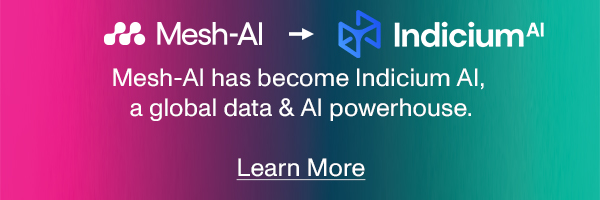


The pressure is on for enterprise organisations to reimagine their relationship with data.
Poor quality data is costing businesses millions in lost revenue. Operational inefficiencies, inaccurate insights and a loss of productivity are leaving both customers and employees feeling disillusioned and looking elsewhere.
With a constantly growing mountain of data coupled with more complex use cases, how is it possible to ensure the data driving your organisation is a true reflection of reality?
Better data can empower your people. Employees at organisations can lose a lot of time when battling data issues, so it's vital that the quality of enterprise data is improved.
However, with many teams operating within companies that are siloed, getting access to data and assessing its quality can be close to impossible.
Good quality data is essential to innovate and future-proof the enterprise.
Companies that are further along their digital transformation journey have already discovered that data can help to, not only shape their direction, but also to generate new revenue streams that they hadn’t previously considered.
The Covid pandemic and subsequent lockdowns demonstrated how businesses need to be able to nimbly redefine their offerings and quickly adapt for survival in unpredictable situations.
Those who managed to leverage their digital capabilities were able to protect both their core business while also capitalising on new opportunities thrown up by new ways of living and working.
Data Downtime is when businesses don’t have access to data that reflects reality.
It’s not just about situations where a database or dashboard has gone down and become inaccessible, it also refers to incidents where businesses are using inaccurate or stale data without even realising it.
This is far more dangerous as it only takes one inaccurate metric or report for an organisation to make a catastrophic decision and lose trust in their data completely.
Reports and dashboards created from data are vital for many organisation’s daily operations yet it’s often complicated to verify the accuracy, quality and freshness of the many upstream datasets. It’s estimated that organisations spend between 10 – 30% of their revenue each year on handling data quality issues.
That’s where Data Reliability comes in.
It brings the well-refined practices and principles of Site Reliability Engineering (SRE) to address the complex data problems organisations are facing and is especially relevant when it comes to Federated Governance and self-service data platforms.
Quite often, you’ll find domain teams have the deep domain expertise to create data products but may not have the technical expertise to implement the guardrails needed to ensure their data products can be trusted in production. Likewise, a core data enablement team may have the technical expertise to implement these guardrails, but they may not have the domain knowledge and context to tell the difference between normal data behaviour and what could be the result of bad data quality.
Due to the high level of collaboration needed for effective Data Reliability Engineering, you must have the systems and processes to support this level of interoperability within your organisation.
This won’t only bring safety and integrity to the business but will also build trust in your team that you can provide them with the insights and data they need to unleash both their own and the company’s full potential.
1) Data testing and validation is necessary to ensure your data transformations produce the expected results after the data has passed through your pipeline.
2) Observability (monitoring and alerting) of your live data and visualisations, which can be as simple as checking if they are accessible or when they were last updated and also be used for analysing historical changes in data and using this for anomaly detection.
3) Continuous Integration and Continuous Deployment (CI/CD) and Automation can be used to orchestrate data validation and deployment of data pipelines to minimise the margin of human error.
4) Data branching and version control will allow your domain teams to publish versioned releases of their data and visualisations so that any significant changes can be tested in beta before being released to the entire organisation.
Good data discovery is also vital when it comes to data reliability. If domain teams can’t easily find accurate data in the organisation, they will likely look to create their own or pull data from other sources which may not be of good quality. This could break compliance regulations and lead to hefty fines for companies.
These capabilities are often part of a shared/federated data platform and can also be self-service and automated. This means you can empower your domain teams to develop new data products quickly in a safe, controlled environment and increase the speed you can utilise data for making critical decisions.
You should then look at the observability of your live data assets, tackling data quality from multiple angles to help give you a more robust and well-rounded solution.
As you mature into data product thinking, you can start looking at data branching and version control, allowing your domain teams to publish and share versioned releases of their data products.
With the help of automation and a robust and scalable cloud data platform, it can be very easy to build on these fundamentals to produce a truly sophisticated and resilient data reliability solution.
Many businesses believe that getting data right can help solve multiple problems as well as boosting revenues – and they aren’t wrong.
To succeed, your data needs to be a recording of what’s happening in the real world – but if it’s lying to you, you’re in trouble.
If data reliability is something you’ve been battling with, we’d love to hear from you. Get in touch with us at hello@mesh-ai.com.
Interested in seeing our latest blogs as soon as they get released? Sign up for our newsletter using the form below, and also follow us on LinkedIn.
